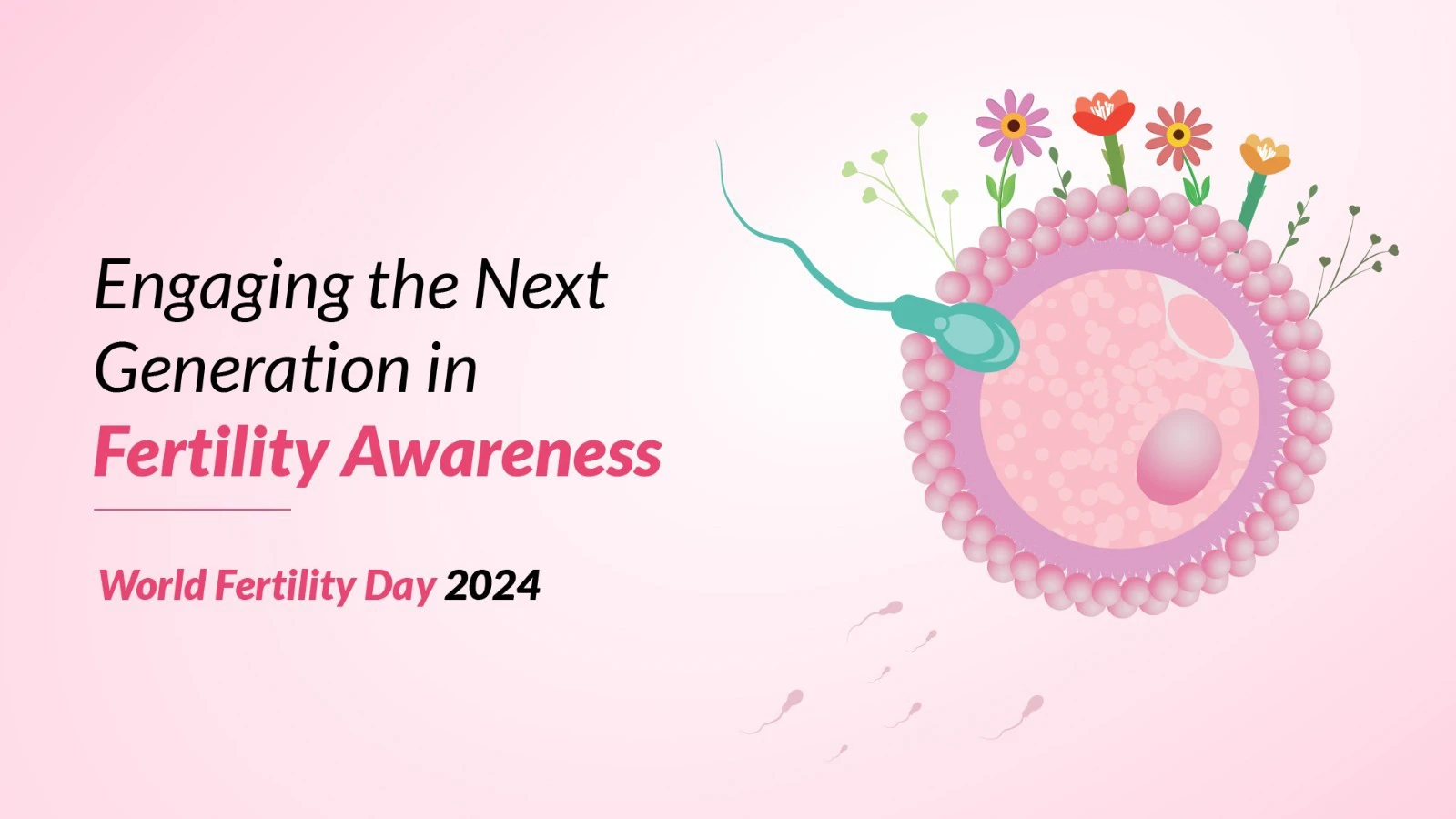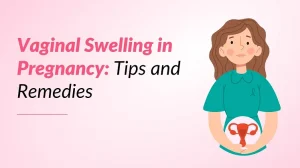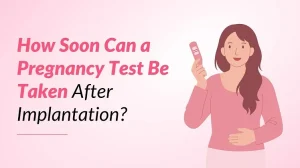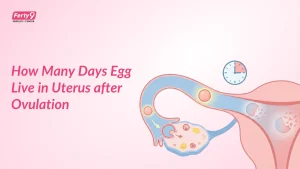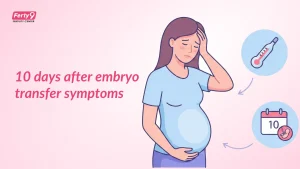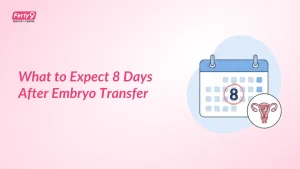World Fertility Day, observed annually on November 2nd, shines a global spotlight on fertility awareness and support. World Fertility Day 2024 is an ideal opportunity to engage younger generations in understanding and upholding fertility awareness. This year’s topic, “Engaging the Next Generation in Fertility Awareness,” aims to educate young people about reproductive health, the factors that influence fertility, and proactive steps to protect it. India, the world’s second-most populous country, has been experiencing a steady decline in fertility for a while now.
The Sample Registration System (SRS) Statistical Report (2018) and global population projections from the Institute of Health Metrics and Evaluation (IHME), US, recently released statistical figures estimating India’s total fertility rate (TFR), which was 2.2 in 2018 and is showing a continuous declining trend, with a replacement TFR of 2.1 soon to be reached for India. With changing societal norms and varying family planning goals, fertility awareness is critical for making educated decisions regarding the future.
National Infertility Awareness seeks to educate individuals and couples about reproductive health, fertility challenges, and accessible resources to encourage family planning and healthy reproductive choices. As global health priorities shift, raising early awareness can help young people make better, more mindful decisions.
Let us develop transparent conversations, eliminate myths, and help future generations navigate their fertility journeys with confidence.
The Growing Importance of Fertility Awareness
Infertility is a condition of the male or female reproductive system characterized by the failure to conceive following at least 12 months of frequent unprotected sexual intercourse. Fertility issues can result from male, female, or unexplained reasons. Fertility issues can cause emotional stress, strained relationships, financial burdens, and difficulties with family planning objectives. Rising infertility rates, as well as lifestyle factors such as stress, food, and environment, highlight the importance of fertility education for early intervention and prevention.
Fertility awareness is becoming increasingly important as people postpone family planning and face reproductive health issues. It provides people with information about their physical well-being, reproductive windows, and fertility-related issues, helping them to make more informed decisions regarding family planning and general health. Infertility awareness promotes communication and educated decision-making, which helps people manage their reproductive health and minimizes the stigma associated with infertility. This information eventually leads to healthier choices and a better foundation for future families.
While World Fertility Day raises awareness and educates about fertility challenges to assist people and couples on their reproductive journeys, National Infertility Awareness Week (NIAW) also emphasizes the significance of knowing the emotional, financial, and medical aspects of infertility. NIAW promotes a supportive atmosphere for individuals and couples embarking on their desire to have a baby.
Common Fertility Issues Faced by the New Generation
The younger generation has a number of fertility issues, including lifestyle choices that might harm reproductive health, such as poor diet, excessive stress, and lack of physical activity.
Another factor that contributes to deteriorating ovarian health and sperm quality is increased exposure to environmental contaminants and toxins. Endometriosis, ovulation disorders, and polycystic ovarian syndrome (PCOS) are the conditions that are becoming more common and frequently causing hormonal abnormalities and infertility.
As people age, delayed family planning—which is impacted by both personal and professional objectives—can further lower reproductive potential. Today’s reproductive issues are further complicated by the growing prevalence of metabolic diseases and obesity.
Also read: Why is Fertility Tourism on the Rise in India?
Infertility Awareness Efforts: How to Get Involved
Fertility awareness is defined as “the understanding of reproduction, fecundity, fecundability, and related individual risk factors (e.g., advanced age, sexual health factors like STDs, and lifestyle factors like smoking and obesity) and non-individual risk factors (e.g., environmental and workplace factors), including the awareness of societal and cultural factors affecting options to meet reproductive family planning as well as family building needs.”
The first step in being active in infertility awareness campaigns is to educate yourself on reproductive health issues and spread trustworthy information to friends, family, and online forums. National Infertility Awareness Week is observed during the last complete week of April every year, emphasizing the significance of understanding reproductive health and the variables that influence fertility.
By contributing, volunteering, or participating in occasions like World Fertility Day, observed on November 2nd of every year, or World IVF Day, observed on July 25th of every year, you can help groups advocating for infertility. Consider sharing personal experiences to promote empathy and understanding, and have open discussions to help lessen the stigma associated with infertility. Finally, advocate for better access to fertility treatments and support policies that improve reproductive healthcare for everyone.
IVF and Other Fertility Treatments: Understanding the Options
There are three primary methods of fertility treatment that include the use of medication, surgical approaches, and aided conception, which include IVF and IUI. The well-known fertility procedure known as in vitro fertilization (IVF) entails fertilizing an egg with sperm outside of the body before implantation in the uterus. Intrauterine insemination (IUI), which increases the likelihood of pregnancy by introducing sperm directly into the uterus during ovulation, is an additional alternative. To control hormonal abnormalities that impact fertility, ovulation-stimulating medications are also frequently used. Options such as gestational surrogacy and egg or sperm donation can offer avenues to motherhood for those with particular reproductive problems.
People are better equipped to make decisions based on their own situation when they are aware of these treatments. Since each choice has unique advantages, disadvantages, and success rates, seeking individualized advice from medical professionals is crucial.
How do Social Media and Digital Platforms Boost Fertility Awareness?
Social media and digital platforms increase fertility awareness by providing readily available information, support networks, and resources for those with reproductive challenges.
In order to empower people in their family planning journeys, fertility outreach programs seek to inform communities about reproductive health, offer tools, and raise awareness of fertility difficulties. To assist couples in managing their reproductive health and lessen the stigma attached to infertility, fertility centers also provide trustworthy information on all fertility-related issues on their websites. Online initiatives and instructional materials also increase public awareness of fertility problems, enabling users to make knowledgeable choices regarding their reproductive health.
Engaging the Next Generation in Fertility Awareness
Fertility education or awareness for the next generation is essential for fostering informed reproductive health decision-making. Early introductions to subjects like family planning, lifestyle effects, and reproductive cycles can be made through school-based educational programs and community projects. Technology, including applications and internet resources, can enhance the interactiveness and accessibility of fertility education. By encouraging open conversations and factual information, we can enable youth to take control of their reproductive health and future family planning.
Find Hope and Solutions for Female Infertility and Male Infertility — Explore Our Comprehensive Services
Fertility Preservation Service
Blastocyst Culture & Transfer Treatment
Conclusion
World Fertility Day 2024 serves as a timely reminder of the importance of educating and engaging younger generations in fertility awareness. By prioritizing this information, we enable people to make educated reproductive decisions and build a supportive community. Together, we can break down obstacles, reduce stigma, and ensure a healthy future for all.








